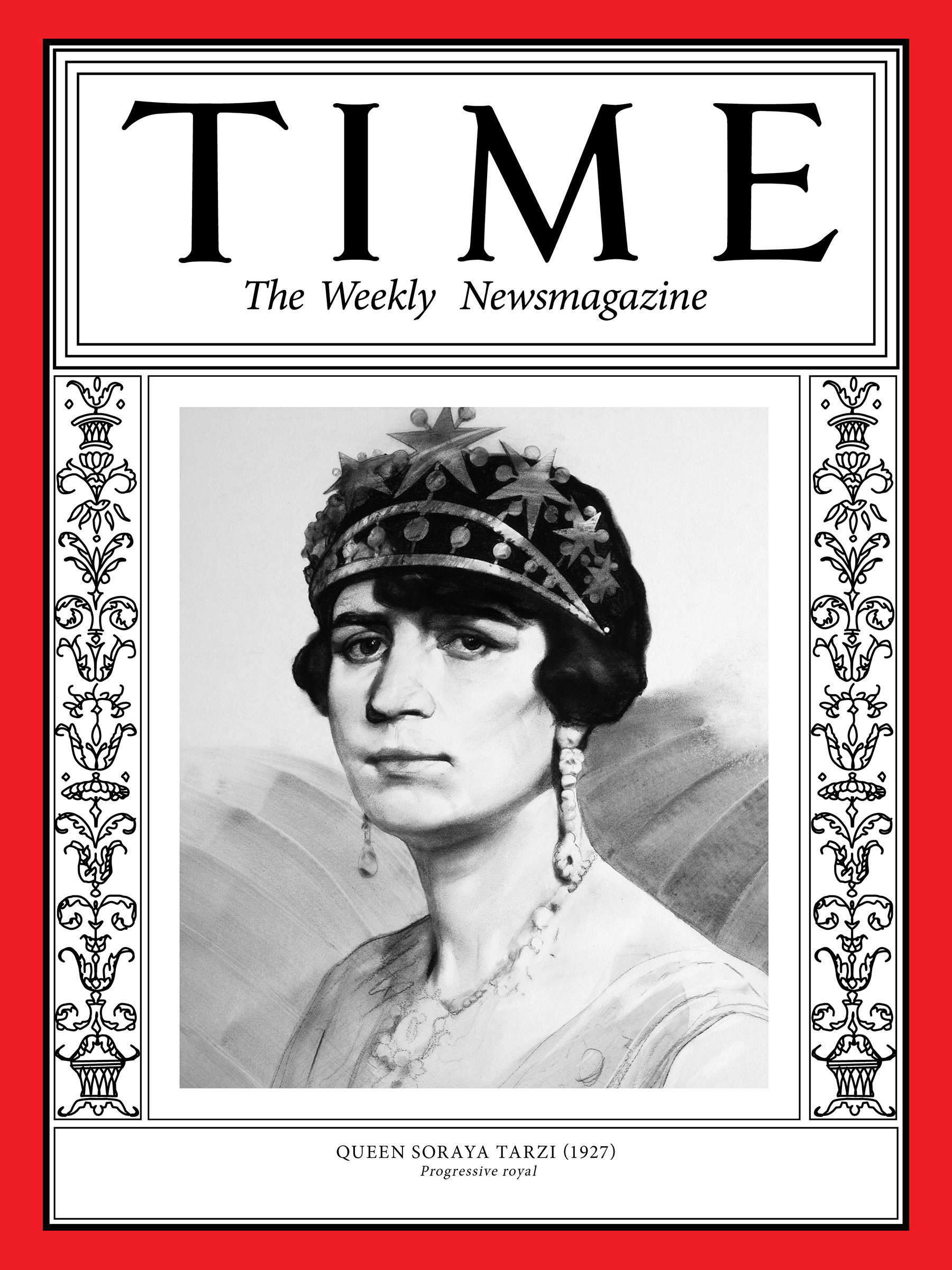The daughter of a liberal Afghan intellectual, Queen Soraya Tarzi was fond of breaking with tradition. As the first Queen Consort of Afghanistan and wife of King Amanullah Khan, she became one of the most powerful figures in the Middle East in the 1920s, and was known throughout the world for her progressive ideas. Tarzi and Khan worked closely together; in 1926 he declared, “I am your King, but the Minister of Education is my wife, your Queen.”
In the face of opposition, the couple campaigned against polygamy and the veil, and practiced what they preached; Tarzi was known for tearing off her veil in public and instead wearing wide-brimmed hats with an attached veil. A fierce believer in women’s rights and education, she opened the country’s first school for girls, and along with her mother founded the country’s first women’s magazine in 1927, called Ershad-I-Niswan, or “Guidance for Women.”
Saying that independence “belongs to all of us,” Tarzi forcefully called for women to “take their part” in nation building. A second wave of reform in Afghanistan in the 1970s would echo Tarzi’s ideas from 50 years before, with a rise in women’s education and representation in political life, and the raising of the marriage age. —Suyin Haynes
This article is part of 100 Women of the Year, TIME’s list of the most influential women of the past century. Read more about the project, explore the 100 covers and sign up for our Inside TIME newsletter for more.
